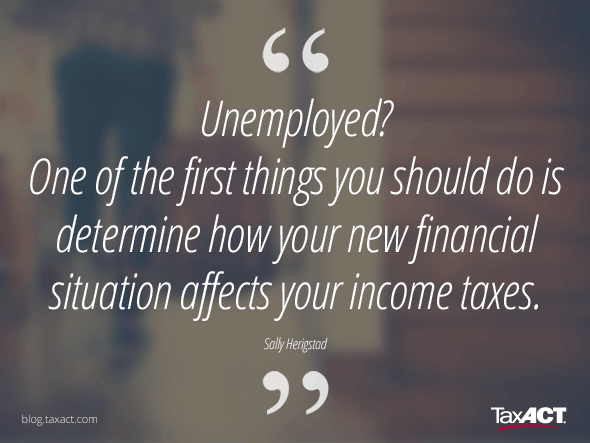
Many unemployed Americans end up owing taxes because they
are not aware that unemployment compensation or unemployment benefits are
taxable. State unemployment insurance benefits up to 26 weeks and extended
benefits, up to an additional 13 weeks are also taxable. Seven states fully exempt unemployment benefits: Montana,
New Jersey, Alabama, Pennsylvania,
Arkansas, California, and Virginia. Wisconsin and Indiana offer partially
exempt unemployment benefits. All other states that offer unemployment benefits
tax them in full.
When you apply for unemployment you have the option to have
income tax withheld. If you do not choose this option you will be required to
pay taxes on the money received when you file taxes for the current year and
could end up owning thousands of dollars. You will receive a Form 1099-G of the
following year which will show your total unemployment compensation and the
amount of federal income tax and state taxes that were withheld if you choose
those options. Even if you stopped receiving unemployment compensation it is to
your advantage to file a return. You may be entitled to a tax refund.
If you took early withdrawals from a pension plan or
retirement account such as a 401k or IRA, the withdrawals are taxable unless
they are rolled over into another qualified retirement plan or IRA within 60
days. If the withdrawal is used to pay for living expenses while you are
unemployed the withdrawals are taxable. In addition, if you are under age 59 ½
you may also be subject to an additional 10% tax on early withdrawals unless
your money is stored in a 457 plan.
If you sold assets or property that you own, such as
investments, a car, boat, etc. you may be subject to income tax if you had a
gain on the sale. If you start a business or have other income on which federal
income tax is not withheld, you may need to make estimated tax payments during
the year.
Filing bankruptcy does not discharge federal
taxes owed. Here are 13 options if you
owe taxes and are unemployed.
- Ask the IRS. Go to an IRS office to get advice on the best option to handle your tax situation.
- Extend. Request an IRS extension and request the maximum extension time of 6 months.
3. Installment. Apply for an installment plan and setup an IRS
payment schedule by filing IRS Form 1127. If you can pay
the amount owed in 3 years. The IRS will charge a one-time fee. The fee will be added
to the total amount of back taxes, penalties, and interest that you owe. You
may be eligible for reduced penalties.
- Offer in Compromise. Request an Offer in Compromise if you cannot pay the total amount owed. This allows you to settle your tax debt for a smaller amount than you owe if you will be unable to pay back the amount owed within 10 years.
- Savings. Use money in savings or checking accounts, savings bonds, stocks, mutual funds, etc. to pay the taxes.
- Borrow. Borrow money from family or friends.
- Earn extra money. Consider getting a part-time job or work overtime at your existing job to earn money to pay back your taxes.
- Pay. Even if you can’t pay the required amount owed, pay something and pay what you can afford. Interest is charged daily on unpaid taxes from Tax Day until the day you make the final payment.
- Short-Term. If you can pay the taxes owed within 120 days contact the IRS to see if you can qualify for a short-term extension.
- Streamline agreement. If you own less than $25,000 and can pay the amount within six years, ask the IRS for a streamlined payment agreement using IRS Form 9465 which charges an application fee.
- Loan. Apply for a loan from a bank or credit union. The interest rate is much cheaper than setting up a payment plan with the IRS or a state taxing authority.
12. Peer Lending. Apply for a private loan from a friend or
relative or from a peer-to-peer lending company such as Zopa or Prosper.
- Credit Card. Pay by credit card if you don’t have the money when the bill is due.
No comments:
Post a Comment